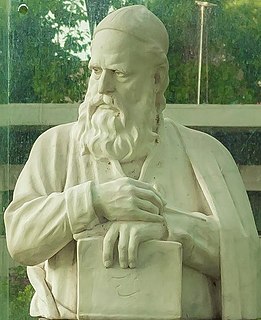A Quote by Friedrich Schiller
Related Quotes
A philosopher is a lover of wisdom, not of knowledge, which for all its great uses ultimately suffers from the crippling effect of ephemerality. All knowledge is transient, linked to the world around it and subject to change as the world changes, whereas wisdom, true wisdom is eternal, immutable. To be philosophical one must love wisdom for its own sake, accept its permanent validity and yet its perpetual irrelevance. It is the fate of the wise to understand the process of history and yet never to shape it.
You haven't changed. You may say: 'I'm full of love, I'm full of truth, I'm full of knowledge, I'm full of wisdom.' I say: 'That's all nonsense. Do you behave? Are you free of fear? Are you free of ambition, greed, envy and the desire to achieve success in every field? If not, you are just playing a game. You are not serious.'
Whoever is full of wisdom is naturally compassionate; in fact we recognize that someone has gained spiritual wisdom by seeing their compassionate behavior. . . . Individuals and countries with power need to develop wisdom and compassion, for without these attributes, there is a danger that the power will be used to oppress and exploit others. (31)
Fate is a misplaced retreat. Many people rationalize an unexplained event as fate and shrug their shoulders when it occurs. But that is not what fate is. The world operates as a series of circles that are invisible, for they extend to the upper air. Fate is where these circles cut to earth. Since we cannot see them, do not know their content, and have no sense of their width, it is impossible to predict when these cuts will slice into our reality. When this happens, we call it fate. Fate is not a chance event but one that is inevitable, we are simply blind to its nature and time.
Towns are full of people, houses full of tenants, hotels full of guests, trains full of travelers, cafés full of customers, parks full of promenaders, consulting-rooms of famous doctors full of patients, theatres full of spectators, and beaches full of bathers. What previously was, in general, no problem, now begins to be an everyday one, namely, to find room.
If you are blessed with great fortunes. . . you may love your fate. But your fate never guarantees the security of those great fortunes. As soon as you realize your helplessness at the mercy of your fate, you are again in despair. Thus the hatred of fate can be generated not only by misfortunes, but also by great fortunes. Your hatred of fate is at the same time your hatred of your self. You hate your self for being so helpless under the crushing power of fate.
It is the fate of most men who mingle with the world, and attain even the prime of life, to make many real friends, and lose them in the course of nature. It is the fate of all authors or chroniclers to create imaginary friends, and lose them in the course of art. Nor is this the full extent of their misfortunes; for they are required to furnish an account of them besides.




































